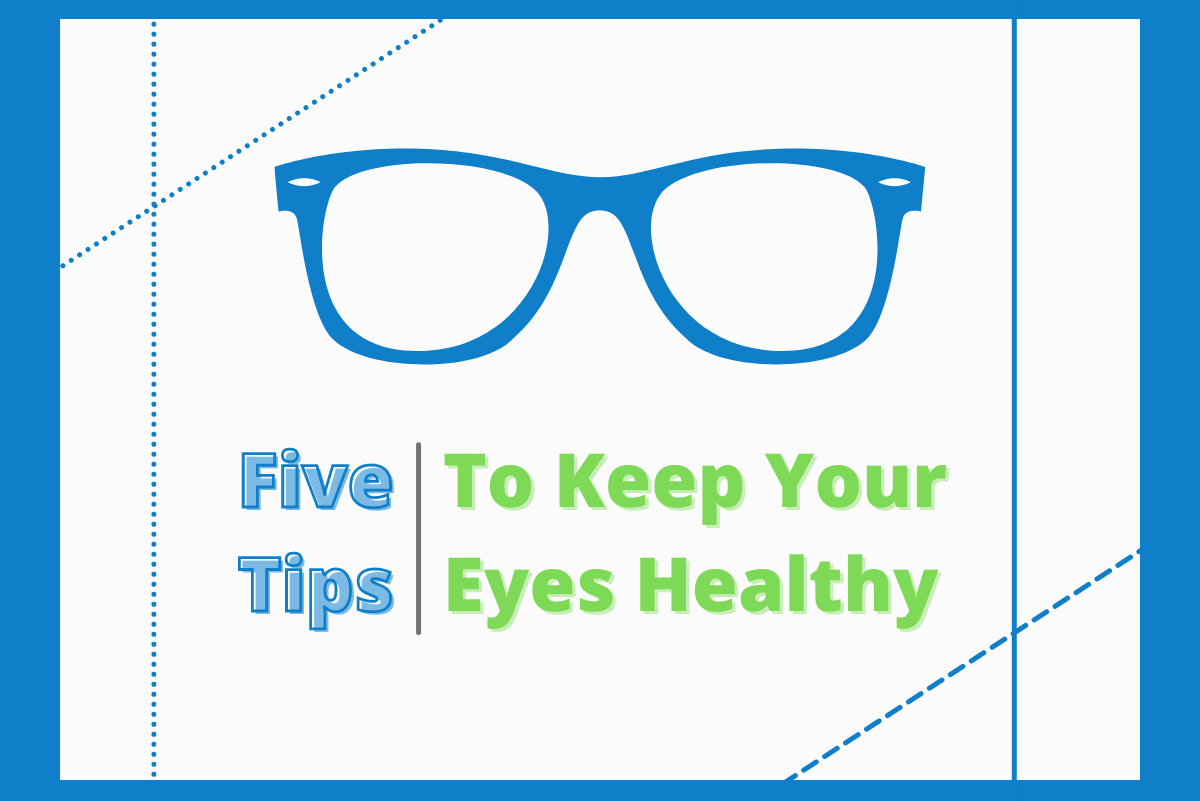With proper health practices, you can lessen your risk of poor vision later in life.
It’s often said that eyes are the window to the soul. True or not, we know for sure that healthy eyes are one of the keys to your well-being. Somewhere around 93 million adults in the United States are at high risk for vision loss, yet only about half of this group has visited an eye doctor in the last year. With proper health practices, you can lessen your risk of poor vision later in life.
Eye Health Tips
The list below includes a few ways to ensure your eyes stay healthy:
- Eat well: more specifically, to receive the nutrients associated with quality eye health, eat foods such as leafy green veggies, citrus fruits, and salmon and other oily fish.
- Wear sunglasses: too much UV exposure can increase the probability of getting cataracts and other serious eye conditions. A pair of sunglasses that block 99 to 100 percent of UV rays are the best choice for you!
- Stop smoking: many people do not know that smoking promotes cataracts and damage to the optic nerve. It is never too late to quit and do not hesitate to ask your doctor for help. St. Mary’s offers Freedom from Smoking, an American Lung Association course led by an ex-smoker to help you quit.
- Reduce your screen time: in an increasingly digital world, ensure you give your eyes a break. Choose to read a book before bed instead of streaming a show.
- Visit your eye doctor: everyone should go to the eye doctor regularly, regardless of age! Eye exams can spot current and future conditions and it is always best to catch them early.
What may I be doing to hurt my eyes?
Many people do not know that activities they partake in daily can cause some serious eye damage. Here is a list of ways you may be causing injury to your eyes:
- Staring too long at a screen: While this does not necessarily cause physical damage, staring at your electronics contributes to stress in the visual system such as eye strain and headaches. In this day and age, it’s almost impossible to avoid looking at a screen, so consider practicing the 20-20-20 rule. This means that if you spend 20 minutes viewing a screen, take 20 seconds to view an object 20 feet away. This gives you an opportunity to refresh your eyes.
- Not wearing sunglasses: As previously mentioned, the sun’s UV rays can give your eyes some harsh damage. Without wearing sunglasses when outdoors, you are exposing yourself to a higher risk of cataracts and macular degeneration. Even more so, sunglasses are highly important when spending time near bodies of water—the reflection in addition to direct sun can be intense and highly damaging.
- Lack of sleep: While many Americans struggle with getting in a proper number of hours, sleep is crucial eye rest time. Sleep allows your eyes to heal and rejuvenate to take on the day. Continuous lack of sleep can even lead to glaucoma.
- Managing diabetes: Uncontrolled diabetes is a leading cause of eye damage and blindness. The good news is that diabetes can be managed to reduce the risk of eye damage and a host of other health problems diabetes can cause.
How can I get eye health help?
As a general rule of thumb, people should visit an eye doctor once a year. These specialists are called ophthalmologists. Ophthalmologists are physicians who not only prescribe glasses and contact lenses, they also provide medical and surgical care for your eyes, including cataract removal and lens replacement. St. Mary’s can help you with your eye health goals. Find a doctor that can serve you best.




